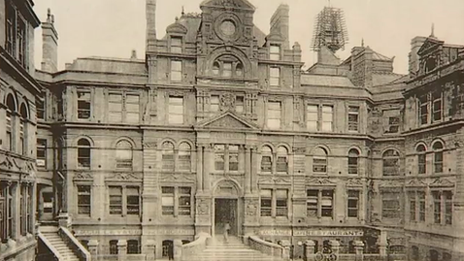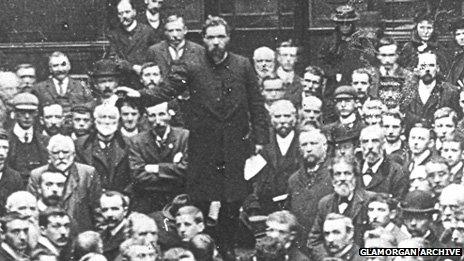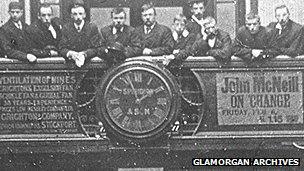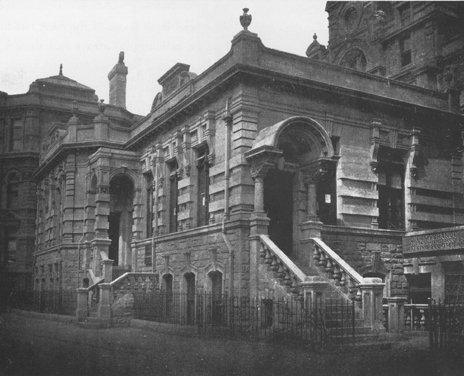Coal Exchange £20m development plans renewed
- Published

The Coal Exchange saw the first £1m cheque signed in 1904 when Cardiff was the world's biggest coal-exporting port
£20m plans to improve a building that was at the heart of Cardiff's 19th Century coal boom will start as soon as the market improves, developers say.
Construction group Macob shut the Coal Exchange in Cardiff Bay in 2007 for a revamp which did not go ahead.
The firm has been allowed to extend its 2006 permission for 116 apartments, two restaurants, shops and office space.
The Grade II-listed site is a live music venue but that element was not included in plans before councillors.
The proposals before the city's development control committee on Wednesday were almost identical to those the Cardiff-based construction group put forward for in 2006 for redevelopment that was to take two years.
But those plans for the landmark Victorian building fell victim to the credit crunch.
Although the hall reopened in 2009 for music and other events after some minor improvements, the planning report said the building has remained vacant and deteriorating for more than 35 years.
It cited the building, once the trading hub for south Wales' booming coal industry, as having "exceptional qualities" but that it now needs protective fencing in places to protect the public from potential falling debris.

Coal owners, ship owners and their agents traded on the floor of Exchange Hall
Macob said it had been given the go-ahead by the committee to extend its planning permission by five years, adding that it will start work "in a staged approach as soon as the market allows".
The Coal Exchange in Mount Stuart Square played an important role in 19th Century industrial Cardiff.

Traders at the Coal Exchange
It was a base from which negotiations were made to trade coal, which was shipped to Cardiff for distribution from the south Wales valleys, with coal owners, ship owners and their agents meeting there daily.
The world's first recorded £1 million coal deal was struck there in 1904.
In later years it was talked about as a possible home for the Welsh assembly and became a music venue.
Macob's 2006 planning permission expired last month and the planning report said critics claim the firm's bid for renewed permission is a way to delay the development further, with the building now a "dangerous crumbling eyesore".
The report said: "The granting of a planning permission does not obligate a developer to undertake development, but simply authorises a development proposal.
"It is not the role of the planning system to force development, only to regulate it in the public interest.
"Not renewing the planning permission would result in a situation where no consent would exist for any development, which would evidently not be in the public interest or in the interests of renovating the building."
Wayne Rees, director at Macob, said the firm planned to "rejuvenate" the historic building.
"Our proposals are to bring 116 apartments, two cafes, two restaurants, two shops and 515 sq m of office space to the development, rejuvenating this historic building," he said.
"The £20m redevelopment plans to transform the building into a vibrant mixed use scheme have been on hold due to the recession."

The Coal Exchange, seen here in the 1920s, closed in 1958